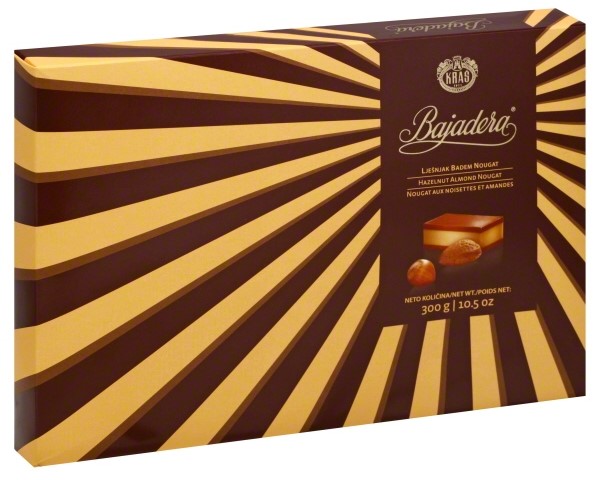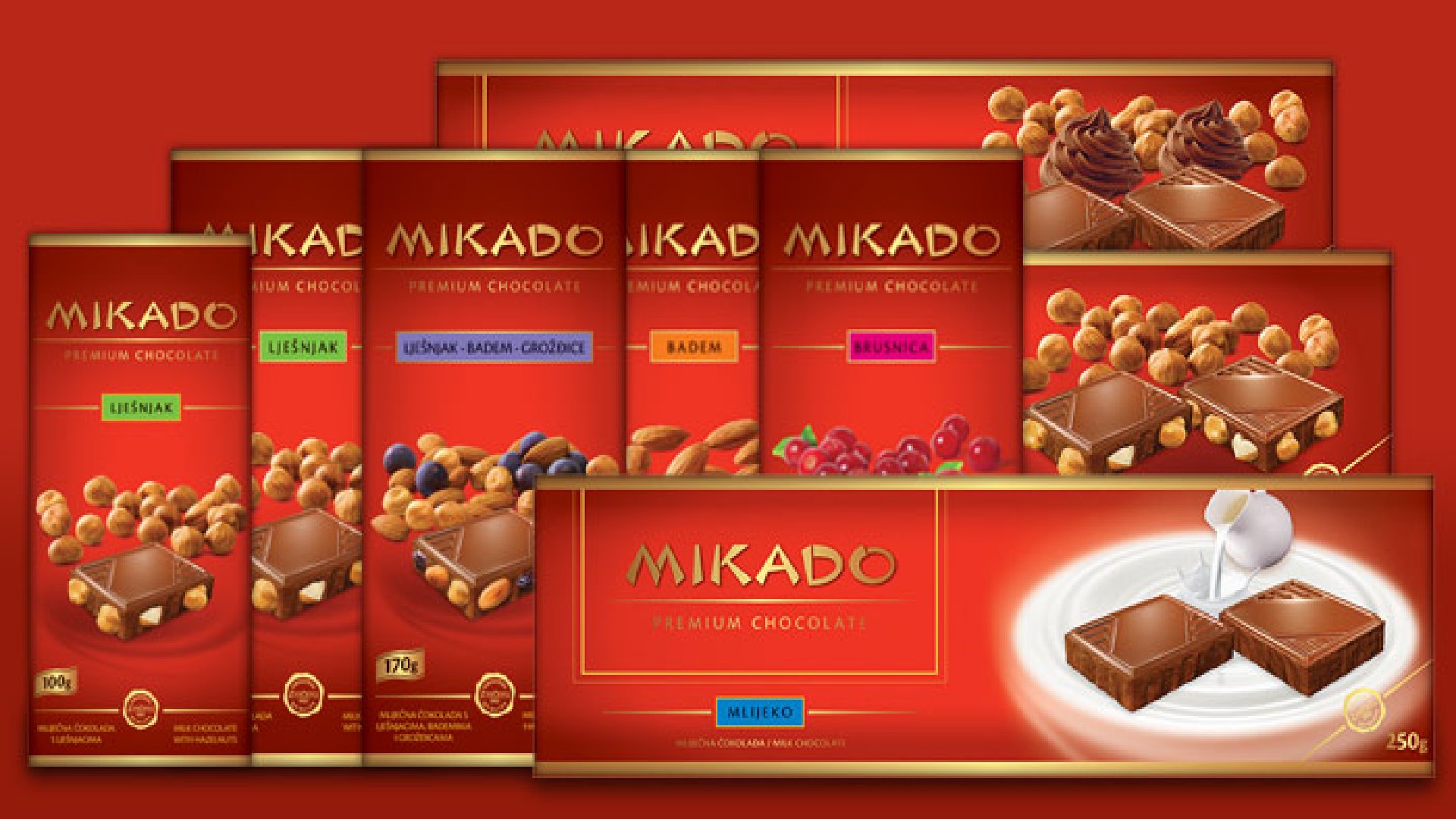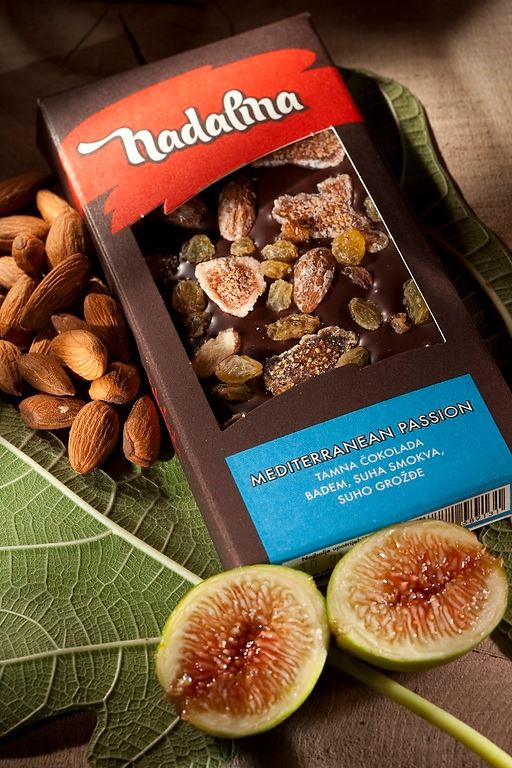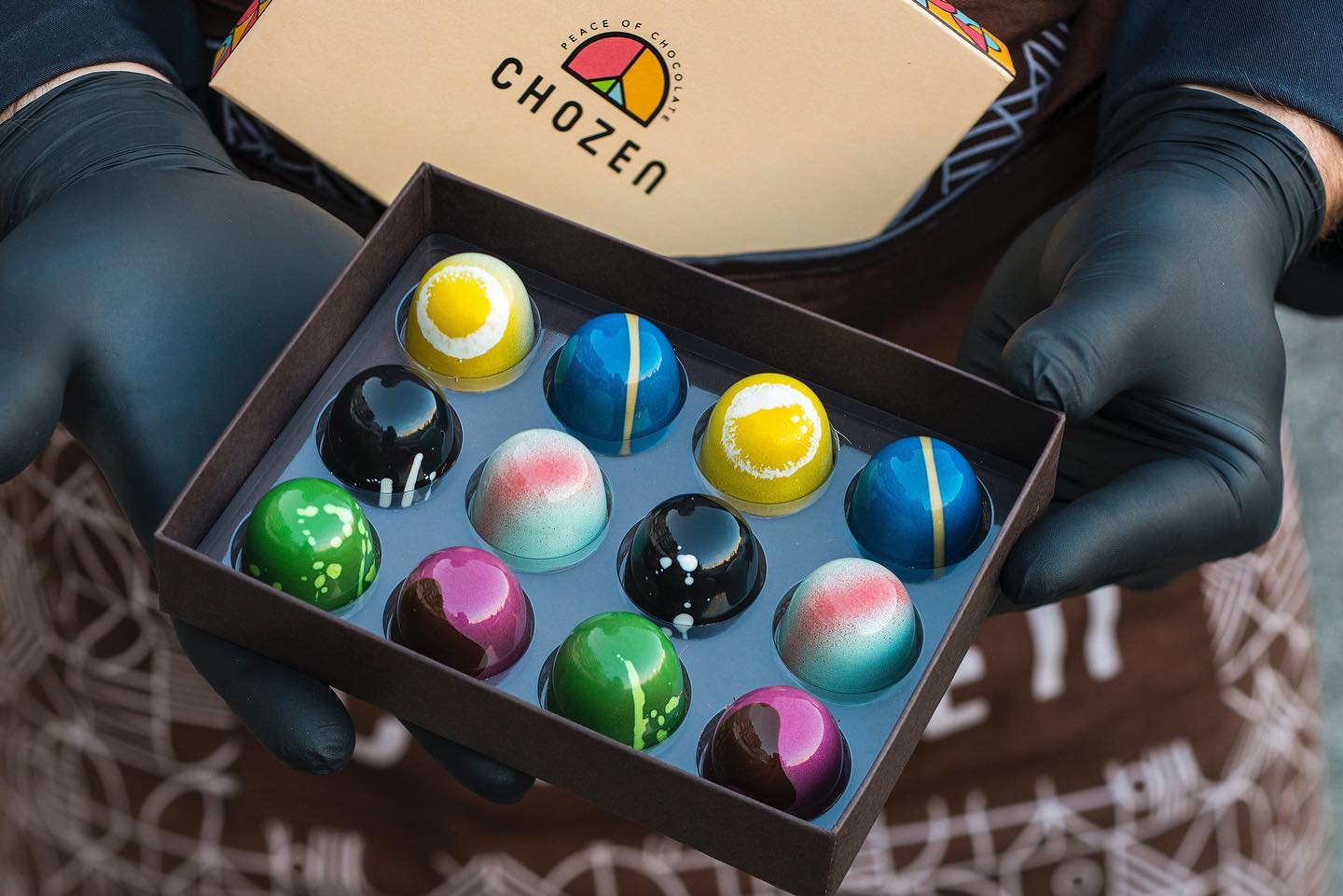Osijek Company Barrage Opening Another Office, Hiring More Employees
June the 27th, 2022 - The Osijek company Barrage is set to open yet another office, this time in Nasice, and employ even more workers. The move being made by this software company will surely help ongoing Eastern Croatian demography issues.
As Poslovni Dnevnik/Josipa Ban writes, the Osijek company Barrage, founded a mere six years ago, should open an office in Nasice by September this year, in addition to their exisitng office in the City of Osijek.
This company has been growing both in terms of revenue and number of employees since its establishment. Back in 2016 they started out with 5 million kuna in revenue and ended in 20 million kuna in consolidated revenue, as well as 8 million kuna earned in 2021. They decided open their office in a small Slavonian town of only 14,000 residents because they noticed that this is a city where they have the talent they need.
Plans in Nasice
"Through the Croatian Association of Linux Users (HULK), which has a long tradition, they showed interest in software and we estimated that no other place in the area has the potential we need," explained Luka Striskovic, the director of Legal Affairs and Human Resources within the Osijek company Barrage.
Six engineers have already been employed by the company, and a total of ten should be working there by the end of the year. Work on the landscaping should be completed soon, but with the move of engineers currently working from home, they will wait until the end of summer, ie September.
This company is engaged in a wide range of software activities, which makes them specific here on the domestic market; as they deal with the development of custom software systems, the development of data centers and digital products, and it's a fact that by the end of this year they plan to increase their number of employees from the current 108 to 150.
The increase in the number of workers should come as no surprise given the number of projects the Osijek company Barrage is currently working on and developing, especially given the fact that this is a company that generates 99 percent of its revenue on foreign markets.
One of the projects is the development of the digital product Travelspot for business travel management. The other is Roango, a platform specialising in hiring professionals in the ICT sector. Both of these platforms were created during the coronavirus crisis and during lockdown, in response to the problems they themselves faced.
While they predict that this year, Barrage's business results will be better than last year’s, they're still looking at 2023 with a healthy dose of caution.
A less than certain 2023...
“We need to be moderately optimistic because the current phase of financial planning comes down more to prophecies than it does to stable planning. Looking at the global economy, there's definitely a difficult time ahead of us,'' pointed out the director of legal affairs and human resources of the company, whose philosophy is that healthy local patriotism can result in something big.
"We believe that a lot can be done here in Slavonia. In many areas, such as industry and agriculture, Slavonia has been struggling for years. We're ready to change all that by enabling people to get a job here at home and not have to head elsewhere,'' concluded Striskovic, noting that their upcoming office in Nasice is the first step towards that.
For more, make sure to check out our dedicated Made in Croatia section.
Osijek Company Orqa Begins Developing Chip Design Ecosystem in Croatia
February the 4th, 2022 - The Osijek company Orqa has begun developing no less than a chip design ecosystem right here in Croatia. Namely, Orqa, Osijek's FERIT and Zagreb's FER signed an agreement on cooperation in the project of designing a specialised chip for unmanned systems.
Complex chip design such as this hasn't existed in the Republic of Croatia so far, and it is on the basis of an initiative through which the rapidly-growing Osijek company Orqa d.o.o. further seeks to advance first-person (FPV) and remote reality (RR) technologies.
The goal of the Memorandum of Understanding signed by Orqa, the Faculty of Electrical Engineering, Computing and Information Technology in Osijek and Faculty of Electrical Engineering and Computing in Zagreb, is the joint work of experts, engineers and academia on research and development of technologies of strategic importance for digital and a more resilient European Union (EU).
As such, for the implementation of this initiative, the signatories of the Agreement will also promote a key strategic instrument for the implementation of the EU industrial strategy - Important Projects of Common European Interest (IPCEI).
“We intend to design a chip specialising in unmanned systems such as drones, vehicles or vessels, with the ability to upgrade to autonomous functionalities. This extremely complex project is the first project of this type in all of Croatia, we're among the first in the world, and currently there aren't enough engineering capacities for such a design.
Although this sort of staff is currently lacking here in Croatia, through this project we're trying to build capacities and train engineers in order to start the development of the chip design ecosystem in Croatia in accordance with global trends. Cooperation with faculties as staff generators plays a key role in this. Through this project, we intend to achieve a symbiosis of commercial needs on the one hand, and academic knowledge and research on the other. In addition to the aforementioned faculties, the support of the Ministry of Regional Development and EU funds is extremely important for us in order to pave the way for the further development of this attractive industry,'' said Srdjan Kovacevic, co-owner and CEO of the Osijek company Orqa.
As a world leader in the development of video glasses for drone pilots and as a leading regional company in the drone industry, Orqa is rightly considered a leader in Croatian modern technology and innovation. This isn't a surprisie at all when one considers the research, development, and prototyping of devices in the field of first-person view (FPV) technology, remote reality (RR), video signal transmission and radio communication, and the production of electronic components and devices the company engages in - the most famous of which are video goggles for FPV drone pilots. Collaboration with STEM studios is a great opportunity both for young engineering hopefuls and for the entire technology sector. The signed Agreement is unique on the territory of the Republic of Croatia, and with it the City of Osijek and Osijek-Baranja County will be more strongly positioned in the demanding IT world.
"This agreement will further strengthen the cooperation between the two leading Croatian faculties in the field of chip design, to which the Osijek company Orqa is adding additional value. Here in Croatia, the development of the semiconductor industry is lagging behind other branches of electrical engineering, and the planned scientific research activities in cooperation with the economy will represent a significant step towards the development of microelectronics in this country. The implementation of scientific research will ensure the transfer of the latest knowledge in the economy, but also in study programmes, which will provide domestic students with additional competencies necessary for the labour market in this area,'' said Tomislav Matic, the Dean of FERIT.
In addition to FERIT, the great potential of the Osijek company Orqa was also recognised by the Faculty of Electrical Engineering and Computing from Zagreb, which has long been positioned as one of the leading Croatian educational institutions in the STEM field.
"FER is committed to an economy based on knowledge, innovation and openness to global talent. The strength of any economy lies in the high-tech sector whose progress and competitiveness is impossible without knowledge and scientific research where the academic community plays an extremely important role. This agreement created the basis for the further development of Croatian competencies in the field of chip design and verification. The agreement is also key to connecting the Croatian academic community and the Croatian economy with major European players in the semiconductor industry and ultimately creating a consortium to apply under the Important Common European Interest (VPZEI) mechanism,'' said Gordan Gledec, FER's Dean.
For more, check out Made in Croatia.
Osijek Software Company Mono Has Best Financial Rating
September the 2nd, 2021 - The Osijek software company Mono isn't a new player on the ever blossoming ''field'' of Croatian software developers and companies, in fact it has been a market leader in the field of eCTD software for some time now.
As Poslovni Dnevnik/Suzana Varosanec writes, for years, the Osijek software company Mono has been one of the market leaders in the field of eCTD software, a standard used in the pharmaceutical industry when submitting information to regulatory agencies. Back in pandemic dominated 2020, they still excelled, managing to generate a massive 39.6 million kuna in revenue, while profit after tax amounted to 18.8 million kuna and accounted for 47 percent of their revenue.
This autumn, they plan to move into a new office building in their home base of Osijek, and according to the management team, Mono is "a strong company for the development of complex software systems with an emphasis placed on its own products that use advanced technologies."
When looking at other Croatian companies which did well despite the dire economic circumstances of 2020, the most successful long-term enterprise in 2020 is Zagreb's Spectra Media, while the most successful new enterprise is Sedam arhitektura, also based in the City of Zagreb.
The first gas company (Prvo plinarstvo drustvo) is the most successful enterprise in terms of total revenue in 2020, Zagrebacka banka the most successful bank, and Rimac Automobili is, rather unsurprisingly, the fastest growing company in 2020.
PPK Valpovo is the winner of the Golden Balance for 2020 in agriculture, forestry and fishing, Radlovac from Orahovica in mining and quarrying, HS Produkt from Karlovac in manufacturing, HEP is the winner for electricity, gas, steam and air conditioning supplies, Zagreb's Spectra Media (aforementioned) for water supply; wastewater disposal, waste management and environmental remediation, and the Velika Gorica-based company Lapor for construction.
For wholesale and retail trade; the repair of motor vehicles and motorcycles, the winner is Zagreb's Peek & Cloppenburg, for transport and storage, Rijeka's Jadranska vrata, and for providing accommodation and food preparation and serving, Global Food Zagreb (which runs the wildly popular McDonald's restaurants).
For more, make sure to check out our dedicated business section.
Osijek Company Aurea Group Creates Croatian Water Bike
June the 12th, 2021 - Italy might have its famed gondolas, but could a Croatian water bike from the Osijek company Aurea Group (Grupa) be the next big thing along the Croatian coast and in the country's many lakes and rivers?
As Poslovni Dnevnik/Lucija Spiljak writes, the very first Croatian water bike, made by the Osijek company Aurea Group, has been around since this month. "A Croatian product for the global market" is the slogan of this company, which presented such the first Croatian water bike, Aurea Bike, at Marina Kastela. The water bike will give both local and foreign tourists the opportunity to experience the Croatian Adriatic coast, as well as the many Croatian rivers and lakes in a new, safe, different and at the same time ecological way.
The Osijek company Aurea Group has announced that it is starting with serial production, and although they come from "flat Slavonia" surrounded by rivers and lakes, they will first present their bike on a tour of Croatia in sunny Dalmatia, in the aforementioned marina, where those interested will be able to try it out until June the 13th.
They want to place them throughout Croatia's immediate region and the EU
There are only a few manufacturers of water bikes in the world, and the Osijek company Aurea Group is among them, according to the company's director, Alen Alic. On the world market, this Croatian company stood out owing to its design with unsinkable floats filled with styrofoam, which guarantee additional safety when on the water, and it's also designed for the catamaran type of navigation. This is also an additional impetus towards health tourism and active holidays, which an increasing number of people are focusing on.
"Unfortunately, the coronavirus pandemic affected tourism and put the season into question last year and this year, so due to the uncertainty, we started presenting the products only at the beginning of June. But there's interest, and in May the first bicycles went down to Omis. The target group so far are renters on the coast. For three months, we prepared parts, orders and payments; everything has to be calculated in millimetres because serial production is done according to specific plans,'' explains Alic, who estimates that they have invested more than half a million kuna in the project so far.
Since back in pre-pandemic 2019, when they started with the water bike idea, they've mostly focused on safety and functionality. Apart from being oriented towards the Croatian coast, they're also interested in their innovation in Serbia, Montenegro and Macedonia. The company also hired an export manager for the foreign market because inquiries come from outside the region as well, more precisely from Spain, the Netherlands and even from France.
Alic says that they can deliver up to 50 bicycles in a short time, but they don't want to accumulate stock until they see how the market is standing. He also revealed the details of the production itself.
“We can deliver several dozen pieces in a short time. We have all the parts, we just need to plasticise and assemble them, but we're going to wait and see what the reactions are. We procure the propellers in Germany, and we do and produce everything else here in Croatia. For three months, we worked only on parts, laser cutting, welding, aluminum, lathe, machine and manual processing - all to make the product as safe as possible.
Our bike can’t sink, and we tested it on strong waves and among large boats to make sure it was unsinkable and safe for all users, families and children, from tipping over and letting water in. If the user, for example, hits a rock, there is styrofoam inside, which makes the bike unsinkable, and which makes us stand out on the global market.
The bike can pull up to 5 knots, but it is designed as a comfortable and easy ride at a speed of 2-3 knots (about 5 km/h). We focused mostly on getting a product with a large load capacity and a large diameter, the only important thing is to try to distribute the centre of gravity,'' explains Alic.
The Osijek company Aurea Group's water bike has an attractive design, is two metres wide and three metres long, with a load capacity of 450 kg. However, in the realisation process, Alic says, they wouldn't have succeeded if it were not for the company D&D Metal, with which they've been successfully cooperating for years now, and thanks to which they can present this piece of Croatian-made innovation today.
For more, follow Made in Croatia.
The Country's Biggest Export... Croatian Chocolate!?!
November 4, 2020 - Olive groves and vineyards are iconic elements of the vista on the Croatian coast. They appear frequently, as does the international recognition for the wine and olive oil they produce. This makes it all the more surprising to learn that the country's biggest export is, in fact, Croatian chocolate.
On 4 November 2020, 24 Sata reported the surprising statistics about Croatian chocolate. Their sources are agricultural and food product reports from 2018 and 2019, made by the Croatian Chamber of Commerce. They state that Croatian chocolate and cocoa products were at the top of the export rankings. Croatia wine and Croatia olive oil didn't even get a look-in the top five Croatian exports – the next biggest were corn, tobacco products and then fresh and frozen fish. © Alexander Stein
© Alexander Stein
The production of wine and olive oil in Croatia goes back many thousands of years. The industry for making Croatian chocolate is a baby in comparison – Europeans only encountered cacao beans in the 16th century, while exploring and colonising the Americas. Still, the production of Croatian chocolate does have quite a history.
Bajadera by Zagreb's Kraš is one of the most popular boxes of Croatian chocolate to be given as a gift © Kraš
The oldest maker of Croatian chocolate is Zagreb's Kraš. The company's roots lie in three confectioners from the early 20th century. Union is the oldest chocolate manufacturer in south-east Europe (just two years after its foundation in 1911 was awarded the title of supplier to the royal court in Vienna and Budapest), Karolina, a former flour mill which switched to making biscuits and waffles in 1921 and Bizjak, founded in 1923, which made cookies and wafers. These companies, along with a number of smaller Zagreb confectionery manufacturers were merged in 1950 under the name of Kraš, in honor of Josip Kraš, a Croatian union leader and anti-fascist who was killed in World War II. Their range today includes the bars Dorina and Animal Kingdom, boxed classic Bajadera, chocolate biscuits Domaćica and the wafer bars Napolitanke and Tortica. Kandit's classic Rum bar, made in Osijek. Hands-down the best ultra-cheap Croatian chocolate mini-snack bar © Kandit
Kandit's classic Rum bar, made in Osijek. Hands-down the best ultra-cheap Croatian chocolate mini-snack bar © Kandit
The second oldest company making Croatian chocolate is Kandit, which is today still based in Osijek where its parent company was established way back in 1905 as a sugar production outfit. It switched to making waffles, sweets and chocolates in the early 1920s. Its range today includes the kids' favourite Choco Banana and hands-down the best ultra-cheap Croatian chocolate mini-snack bar Rum. It's a classic. Keeping on-trend, the relatively recent No Guilt series of high-quality, no-sugar chocolate bars has made a great addition to Kandit's offer. This range is the only Croatian chocolate currently recommended by the country's diabetic association. Kandit's No Guilt range has no added sugar and several bars with a high cacao content © Kandit
Kandit's No Guilt range has no added sugar and several bars with a high cacao content © Kandit
The third big player in the Croatian chocolate scene is Zvečevo, from Požega. The company traces its roots back to 1921, but its association with chocolate only really began in 1934 when Swiss company Nestle began to manufacture there (the association continued until 1995). Zvečevo is notable as having invented the combination of toasted rice and milk chocolate in a bar. Now considered a classics pairing across the world, it was first produced in 1964 in Požega under the name of the Mikado bar. As well as still making this classic of Croatian chocolate, Zvečevo now makes a dark chocolate version, chocolate for use in home cooking and a popular range of strong alcoholic drinks. It has won several awards for its ethical and eco-friendly business practices. Zvečevo's Mikado range. With Mikado, the Požega-based manufacturers were the first in the world to combine rice and chocolate © Zvečevo
Zvečevo's Mikado range. With Mikado, the Požega-based manufacturers were the first in the world to combine rice and chocolate © Zvečevo
Standard Croatian chocolate available on the high street can be a surprise to visitors. It has a higher content of the cheaper ingredient (sugar) than the more expensive ingredient (cacao) than many chocolates made in more westerly European countries. But, that's the way Croatians seem to like their chocolate. Well, most of them. According to a survey conducted in 2017 by the Hendal agency and JaTRGOVAC magazine, 63.5% of asked Croatians said they choose domestic chocolate products above the 36.5% who more often buy foreign chocolate products. © Nawal Escape
© Nawal Escape
Data from the Central Bureau of Statistics state that in 2018 the country produced 18,799 tons of Croatian chocolate and cocoa products. Over 800 million kuna's worth of Croatian chocolate was exported in the same year. The bond between Croats and their Croatian chocolate is strong, the love heartfelt. It is no doubt this affection for confection that has prompted some of the third of Croats who go in search of foreign alternatives, for the introduction of premium chocolate ranges by the aforementioned big manufacturers of Croatian chocolate and for the rapid increase in artisan and handmade Croatian chocolatiers over recent years.
Croatian chocolate smaller and artisan producers

Split-based Nadalina have become increasingly recognised over recent years © Nadalina
Split-based Nadalina make high-quality raw chocolate bars with non-standard flavours like rosemary, figs and olive oil. They held the Guinness World Record for making the world’s largest chocolate bar and in 2017 were voted the world's third-best at the International Chocolate Awards. Vilma slastice from the island of Rab combine dark chocolate with flavours like Pag cheese, white truffles and lavender. Salt manufacturers Solana Nin have a salt-infused chocolate and Zagreb's Chozen make impossibly-pretty handmade Croatian chocolate pralines with a surprising and adventurous range of flavours. Besides these, the list of small manufacturers of Croatian chocolate grows every year. It seems that the love affair between Croats and their chocolate is far from finished, and that's certainly good news for Croatian exports. Impossibly pretty handmade chocolate truffles, produced in Zagreb by Chozen © Chozen
Impossibly pretty handmade chocolate truffles, produced in Zagreb by Chozen © Chozen
For the latest travel info, bookmark our main travel info article, which is updated daily.
Read the Croatian Travel Update in your language - now available in 24 languages
Croatian IT Company from Osijek Continues to Grow, Worth 2 Million Kuna
As Poslovni Dnevnik/Lucija Spiljak writes on the 8th of June, 2019, over the years, this Croatian company has invested resources in technology research and the development of new products and functionalities in the domain of business information systems.
The expansion of the Spin company, which deals with IT, in its new office with its new 350-square-metre investment is now worth over two million kuna, bringing the company as many as twenty new jobs.
In the newly adapted attic, there are six offices, a conference room, a kitchen, and even a relaxing area for socialising.
"The goal of upgrading the business space is to provide a pleasant environment that will have a positive influence on the satisfaction and the productivity of our employees, as well as business development," they said from this successful Croatian company.
Osijek's Spin has been operating since as far back as 1990, employing 62 permanent employees, and investing heavily in intensive internal and external education. They are growing steadily and at the very beginning of the business, this Croatian company experienced growth of 15-20 percent per year, while in the last five years, they've grown by seven percent.
In the year 2018, they managed to make a massive 17.5 million kuna, as they say from the company, and the company's newly created value stood at more than 14 million kuna. "We're pleased with the growth and development of our business, especially the stability and the structure of revenue, with more than 80 percent of our revenue being from our own products and services, and we're entering this year with growth as well, and we expect 2019's growth to be 3-5 percent better than that of last year,'' said Ivan Matejašić, Spin's director.
This Croatian company is primarily concerned with the development and implementation of business information systems and the maintenance of the long-term vitality of their system's information systems. That's where Jupiter Software - an integral system and a leading solution in the field of agriculture, food and chemical industry, trade and a wide range of service activities, comes in. Jupiter Software provides a unique interface and an information space for managing all of the business processes within the company.
This system is used by more than 300 companies within Croatia's region, of which 45 are on the list of the TOP 500 Croatian companies. As for this Osijek-based company, Poslovni Dnevnik asked Spin'd director to assess the current situation in Slavonia, as this region is most often mentioned as an example and result of Croatia's burning problems of labour shortages and the departure of the workforce.
In Slavonia, they say they're struggling with a lack of quality staff and various economic circumstances such as the burdensome Croatian tax system and the state of public administration, but the entrepreneur added that he is adjusting, adapting, and invests his energy in good planning and proper organisation.
Make sure to follow our dedicated business page for much more on Croatian companies, Croatian products and services, and doing business in Croatia.


